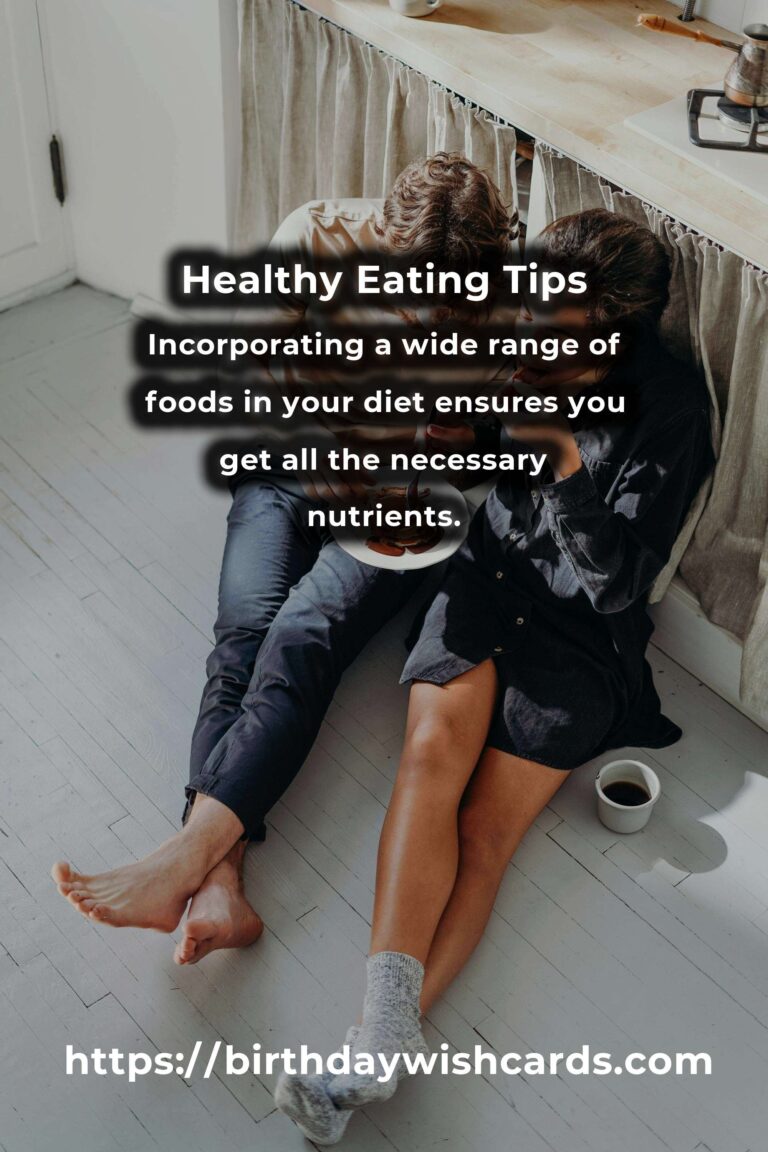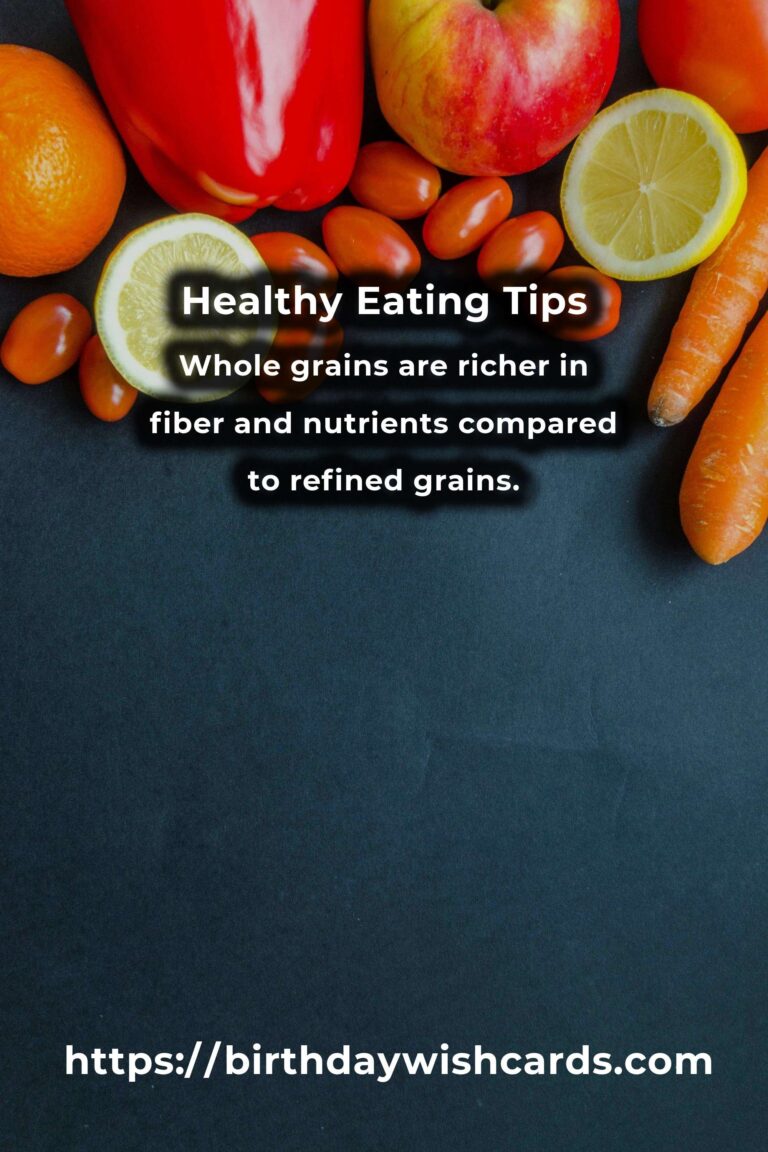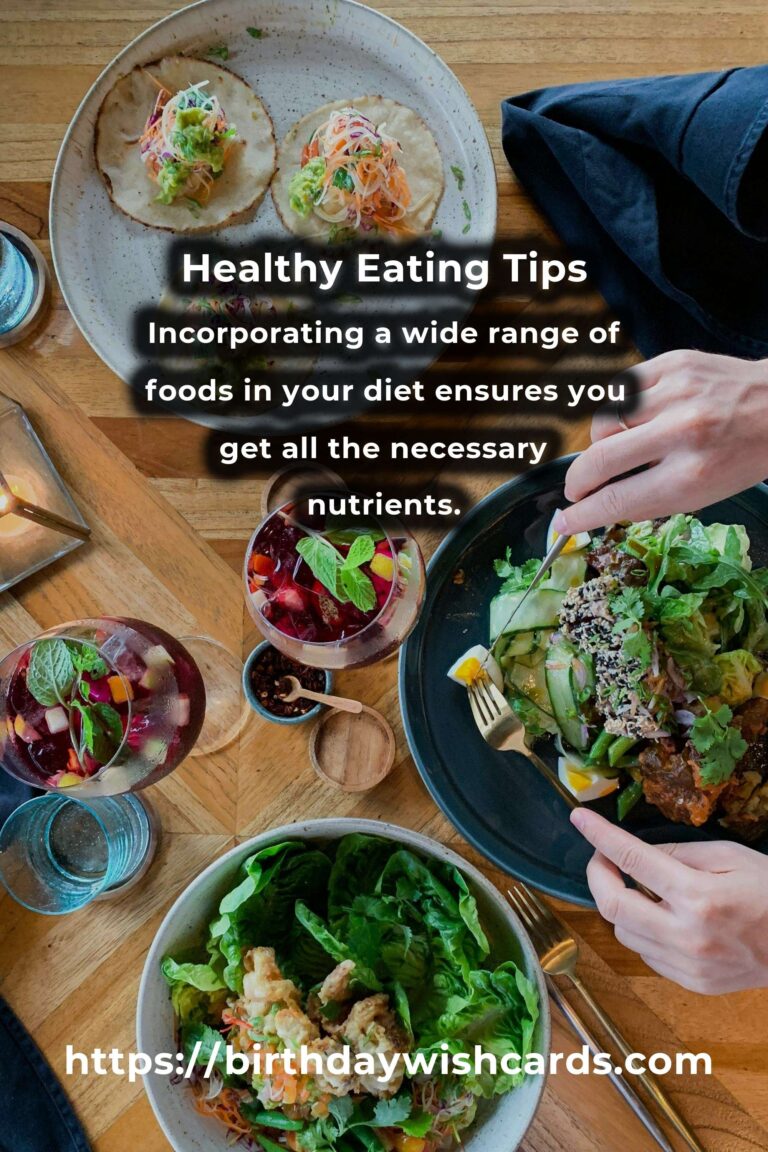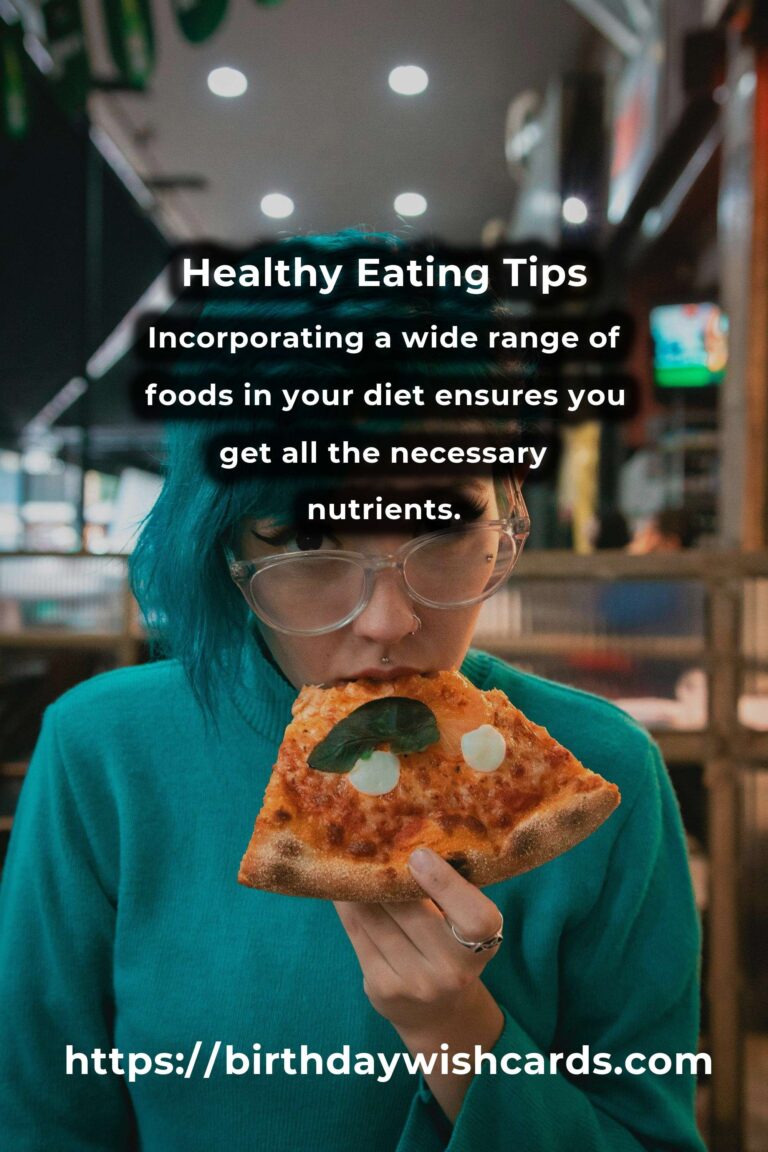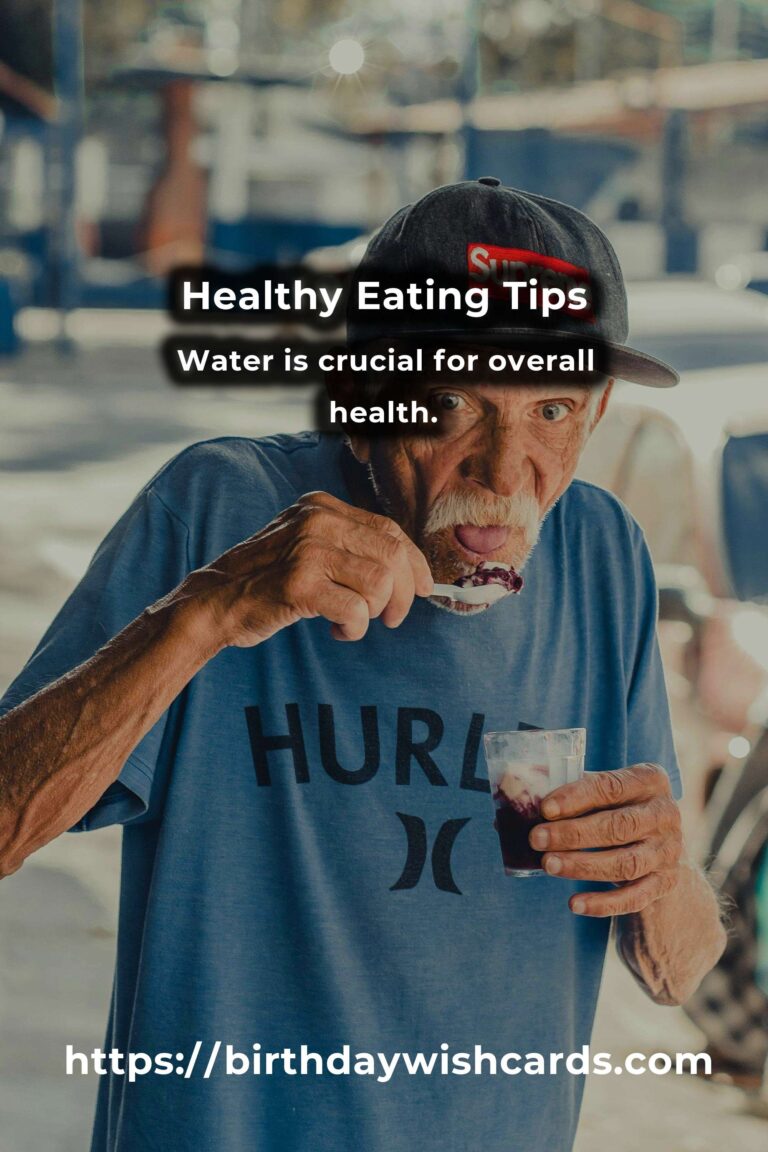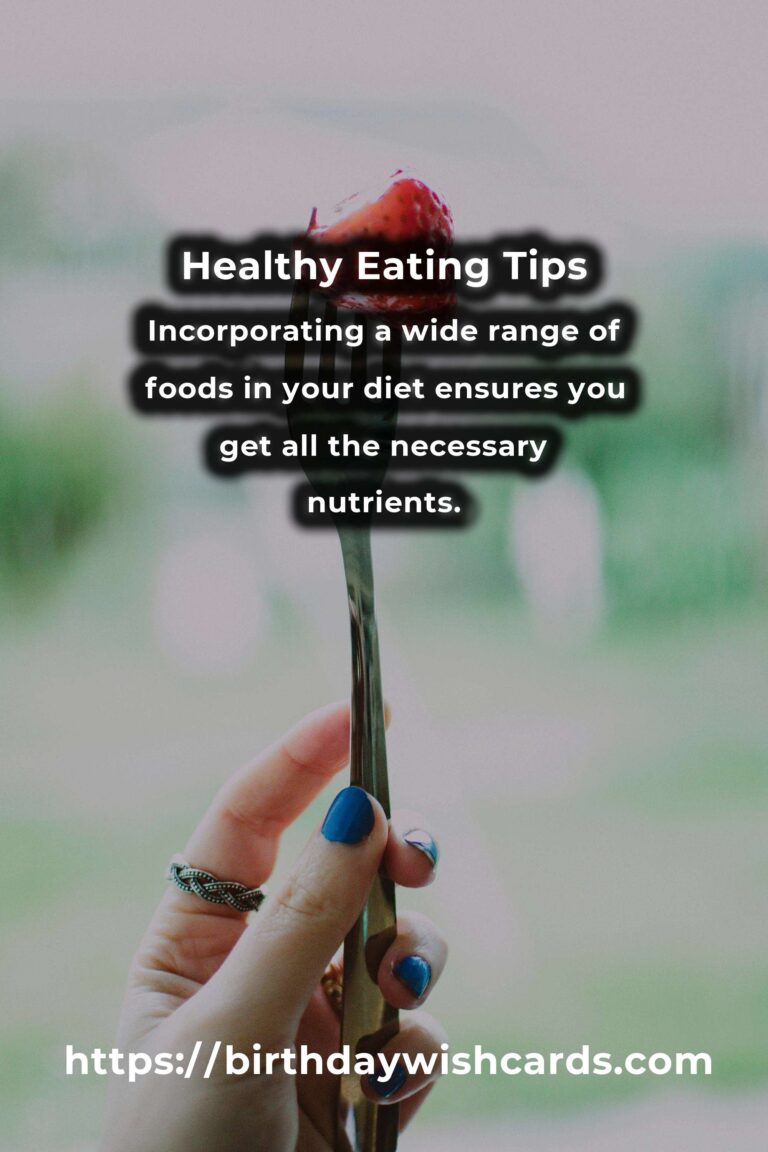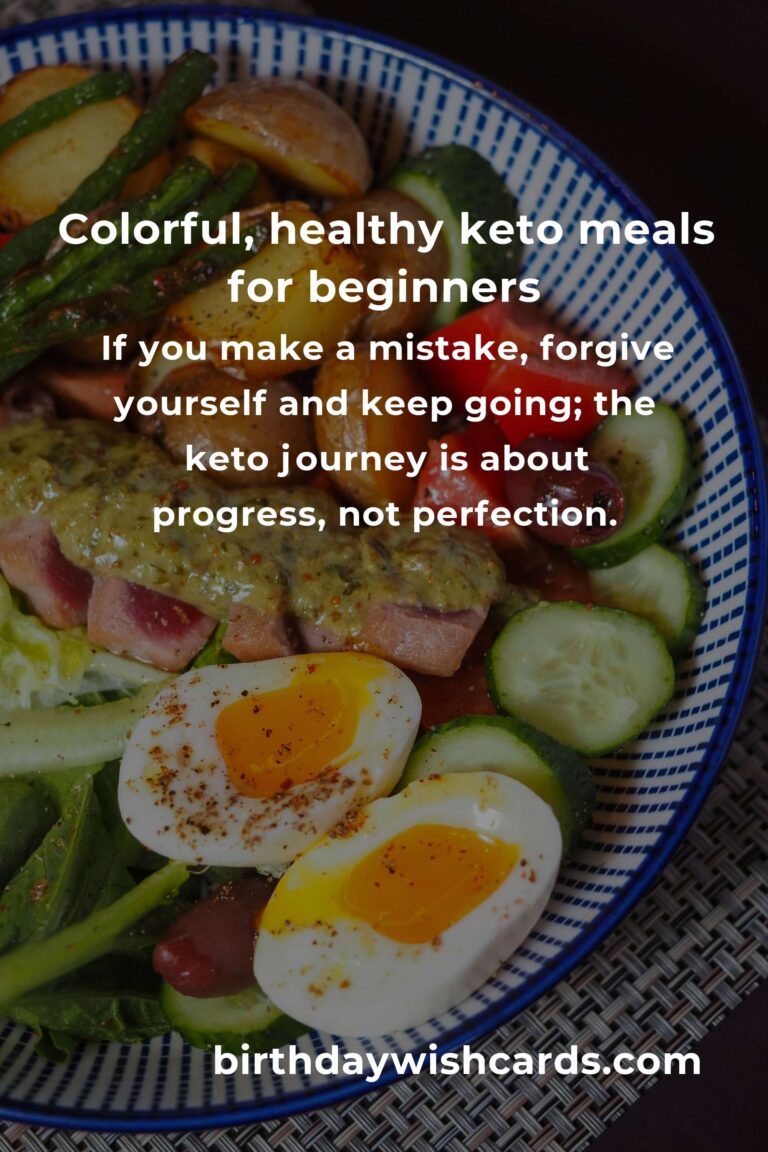
In today’s fast-paced world, maintaining a healthy diet can seem daunting. However, with the right knowledge and strategies, anyone can successfully adopt healthy eating habits. Here are 29 tips to guide you on your journey to better nutrition and overall well-being.
1. Plan Your Meals
Planning your meals in advance can help you make healthier choices and avoid the temptation of fast food. Create a weekly menu and stick to it for better results.
2. Eat a Variety of Foods
Incorporating a wide range of foods in your diet ensures you get all the necessary nutrients. Aim to include different food groups in each meal.
3. Choose Whole Grains
Whole grains are richer in fiber and nutrients compared to refined grains. Opt for whole-grain bread, rice, and pasta to improve your dietary fiber intake.
4. Prioritize Fruits and Vegetables
Fruits and vegetables are packed with essential vitamins and minerals. Aim to fill half your plate with these nutrient-dense foods at each meal.
5. Stay Hydrated
Water is crucial for overall health. Make sure to drink plenty of water throughout the day to stay hydrated and support bodily functions.
6. Limit Sugar Intake
Excessive sugar consumption can lead to various health issues. Reduce your intake by avoiding sugary drinks and snacks.
7. Choose Healthy Fats
Not all fats are bad. Include healthy fats from sources like avocados, nuts, and olive oil in your diet for better heart health.
8. Control Portion Sizes
Being mindful of portion sizes can help prevent overeating. Use smaller plates and bowls to naturally reduce the amount you eat.
9. Listen to Your Body
Pay attention to hunger cues and eat when you’re truly hungry. Avoid eating out of boredom or stress.
10. Reduce Sodium Intake
Too much sodium can lead to high blood pressure. Limit your intake by choosing fresh foods over processed options.
11. Cook at Home
Preparing meals at home allows you to control ingredients and portion sizes, leading to healthier eating habits.
12. Practice Mindful Eating
Focus on your food and enjoy each bite. This practice can help you appreciate your meals and avoid overeating.
13. Read Food Labels
Understanding food labels can help you make informed decisions about what you eat. Look for products with lower fat, sugar, and sodium content.
14. Avoid Processed Foods
Processed foods often contain high levels of unhealthy fats, sugars, and sodium. Choose whole, unprocessed foods whenever possible.
15. Snack Smart
Choose healthy snacks like fruits, nuts, or yogurt to keep you satisfied between meals without overindulging.
16. Limit Alcohol Consumption
Alcohol can add empty calories and affect your health. Drink in moderation and choose lower-calorie options.
17. Incorporate Lean Proteins
Lean proteins like chicken, fish, and legumes are essential for muscle repair and growth. Include them in your diet regularly.
18. Be Flexible
Adopt a flexible approach to healthy eating to avoid stress. It’s okay to indulge occasionally, as long as it’s in moderation.
19. Educate Yourself
Stay informed about nutrition and healthy eating practices through reliable sources to make better food choices.
20. Set Realistic Goals
Set achievable health goals to stay motivated and track your progress over time.
21. Enjoy Your Food
Healthy eating doesn’t mean sacrificing taste. Explore new recipes and flavors to keep meals exciting.
22. Don’t Skip Breakfast
Starting your day with a nutritious breakfast can boost your metabolism and energy levels.
23. Pay Attention to Cooking Methods
Opt for healthier cooking methods like grilling, steaming, or baking instead of frying.
24. Utilize Herbs and Spices
Herbs and spices can enhance the flavor of your dishes without the need for extra salt or sugar.
25. Be Patient
Adopting new eating habits takes time. Be patient with yourself and focus on gradual improvement.
26. Keep Healthy Foods Accessible
Stock your kitchen with healthy options to make it easier to choose nutritious snacks and meals.
27. Practice Gratitude
Being grateful for your food can improve your relationship with eating and promote mindful habits.
28. Engage in Regular Physical Activity
Combine healthy eating with regular exercise to enhance your overall wellness.
29. Seek Professional Guidance
If you’re struggling with healthy eating, consider consulting a nutritionist or dietitian for personalized advice.
Adopting these tips can lead to a healthier lifestyle and improved well-being. Remember, consistency is key, and small changes can make a big difference over time.
Planning your meals in advance can help you make healthier choices. Incorporating a wide range of foods in your diet ensures you get all the necessary nutrients. Whole grains are richer in fiber and nutrients compared to refined grains. Fruits and vegetables are packed with essential vitamins and minerals. Water is crucial for overall health.
#HealthyEating #NutritionTips #Wellness


